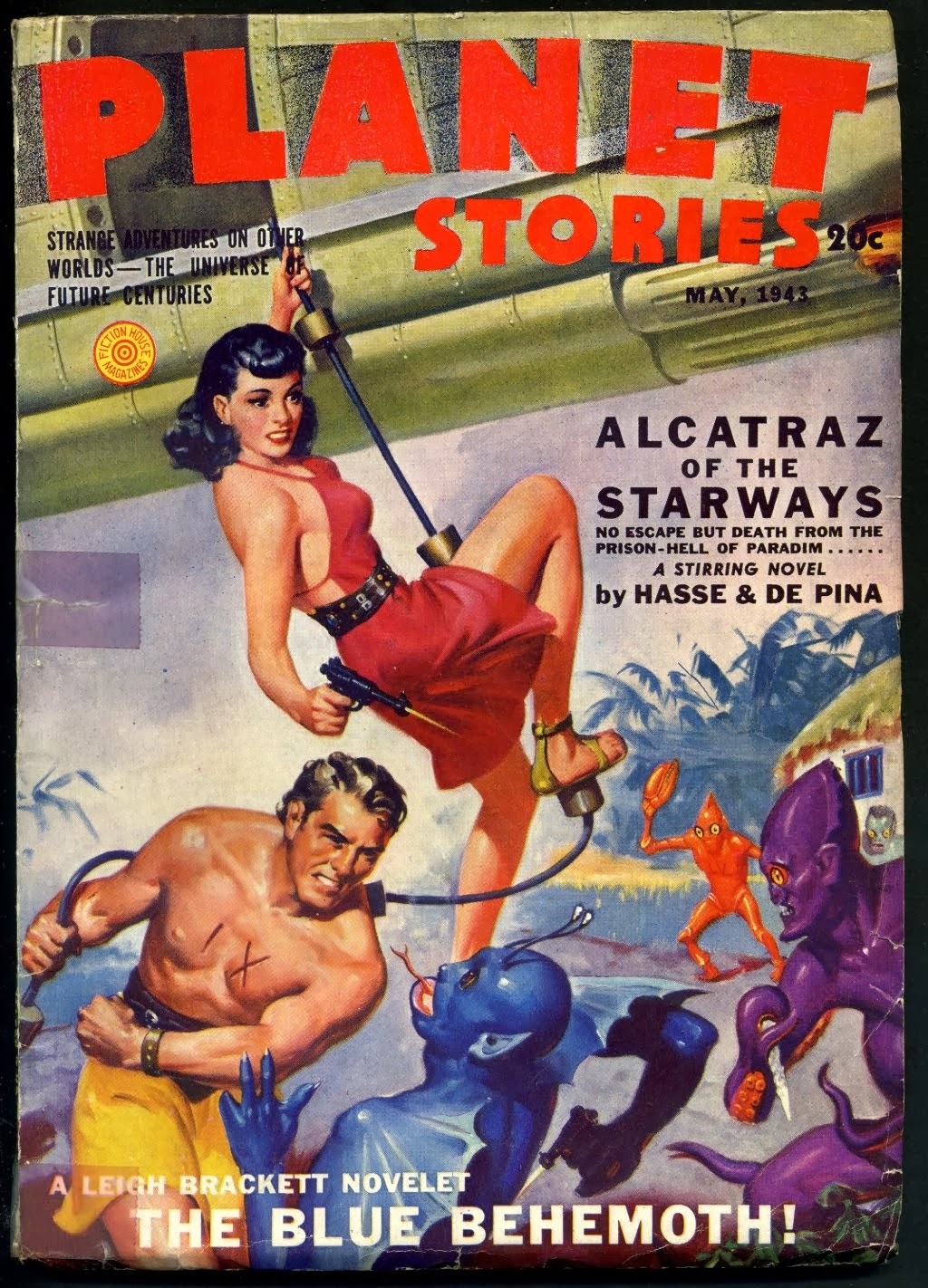 |
| There's nothing mysterious going on here. |
Two of the mystery novels were The Frozen Dead by Bernard Minier and Summertime, All the Cats Are Bored by Phillipe Georget, both of which, as it happens, were set in the south of France. The latter was pulpy, filled with cliche and improbable characters, overlong, and had a prose style that could be politely described as workmanlike. Summertime is a solid police procedural, it's decently written, but it suffers from some lazy sexism, unlikely plot twists, and a tedious sub-plot about the lead character's worry over whether his wife is having an affair. All of the SF and fantasy novels I read were at least as well-written as the crime novels, but I simply couldn't stay with them, and that puzzled me. The answer, I think, is that mysteries get their hooks into us because they withhold information. Mysteries start out by presenting us with a horrific event and then proceed to frustrate our attempts to understand what happened. A mystery, like a stripper, promises a lot if only we'll stick around to the end.
SF and fantasy novels are strippers who come on stage completely naked and then proceed to dress themselves. SF and fantasy are all about big, bold, imaginative concepts, and in most cases the SF concepts or fantasy worlds are put on display right off the top in the first few chapters. What comes after that is the "dressing up" of the concept with characters, plot and action. And that's the fatal flaw in the SF and fantasy genres; if the basic concept of a novel is weak, trite, overblown or poorly described, it will take some superb prose to keep me on board. One book I recently abandoned was Charles Yin's How to Live Safely in a Science Fictional Universe. Recreational time travel is the basic concept, but Yin spends the first part of the book in an opaque description of how the time travel machine works; there's no plot or action, just a user's manual for his imaginative concept. Two other novels I abandoned were an urban fantasy set in London and a SF/steampunk adventure. In both cases the novels started off with big imaginative ideas, but were brought low by vanilla prose and an abject failure to build on the basic concepts. I'm often disappointed by SF and fantasy novels, and I think it's because fans of that genre are happy just to get their teeth into brash SF ideas and extravagantly unlikely fantasy worlds--everything else is just window dressing to them. This also might explain why these genres are overstuffed with trilogies and quartets. The SF and fantasy fan, once they're smitten with an idea, will apparently suffer through any amount of bland prose and mechanical plotting to get yet another fix. Two of the SF/F novels I read were the first in trilogies, and I really can't imagine why anyone would continue with either series.
In general, all of the novels I've mentioned were equally mediocre, but the puzzling, teasing elements in mystery novels keeps me reading them, even though part of my brain is asking why I'm subjecting myself to something so bland and average. With SF and fantasy novels I can't justify continuing to read them if they don't bring anything to the party except a startling, high concept premise, which is inevitably fully on display right off the top, which in turn means the meter on my patience is running. Just so you don't think I'm entirely anti-SF/F here's some superb titles I've read recently, and none of them are the first in a trilogy. Click on the titles for full reviews:
Angelmaker (2012) by Nick Harkaway
The Dervish House (2011) by Ian McDonald
The Minotaur Takes a Cigarette Break (2002) by Steven Sherrill
A Face Like Glass (2012) by Frances Hardinge
Dog Boy (2009) by Eva Hornung
No comments:
Post a Comment